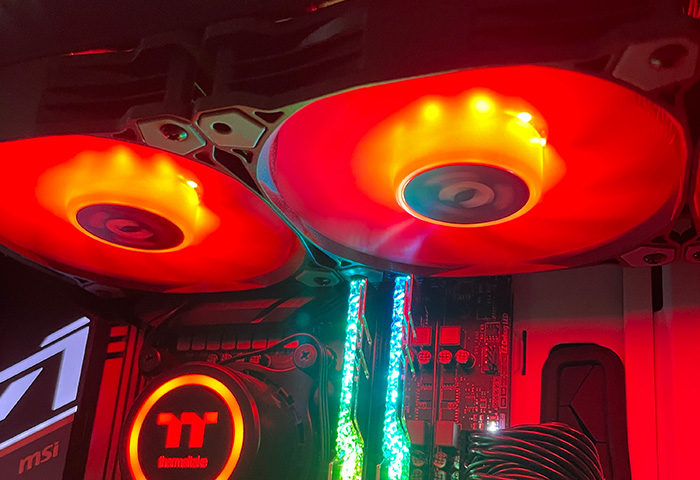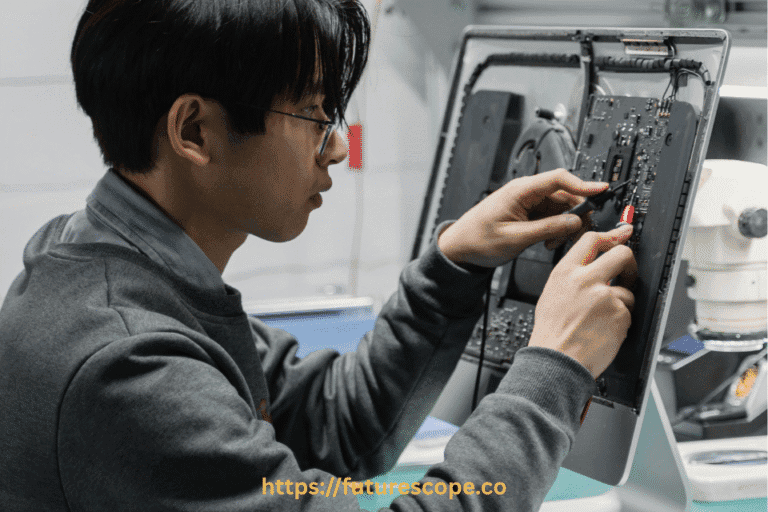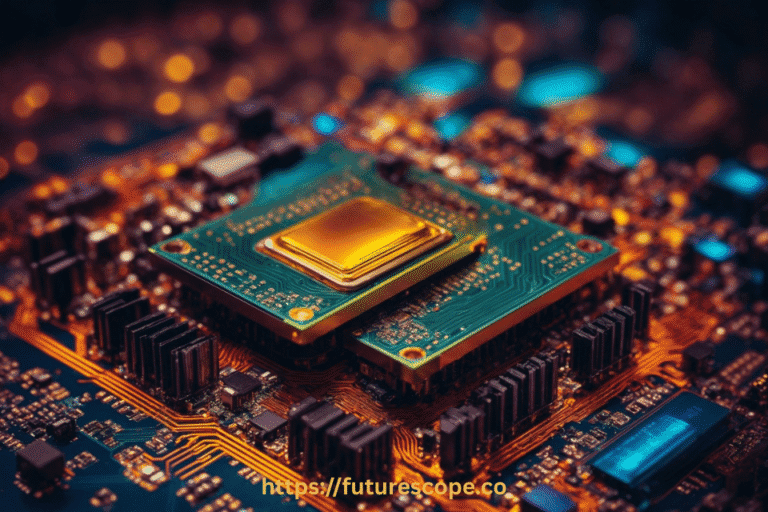Liquid cooling is one of the most popular methods for keeping gaming PCs, workstations, and high-performance computers running at safe temperatures. It is quiet compared to traditional air cooling, and it can handle heavy loads with ease. However, sometimes users notice unusual noises coming from their liquid cooler. This can be worrying, especially if the PC is new or recently built.
Noises such as gurgling, buzzing, or rattling from your liquid cooler can be alarming, disrupting your workflow and hinting at potential performance issues. These sounds often stem from air bubbles, pump malfunctions, or fan problems, which, if ignored, can reduce cooling efficiency by 10-20% or even lead to hardware damage. The good news is that most cooler noises are not signs of permanent damage. Understanding the causes can help you solve the problem quickly.
In this article, we will explore the main reasons why liquid coolers make noise, the types of sounds to watch for, and how to fix or prevent them.

Common Causes of Noise In Liquid Coolers
Liquid coolers are a popular choice for keeping computer components cool, but they can sometimes produce unwanted noise. Understanding the common causes of noise in liquid coolers can help you identify and resolve the issue quickly. Here are a few common causes and fixes
1. Air Bubbles Inside the Pump
One of the most common reasons a liquid cooler makes noise is air trapped inside the pump. Even though liquid cooling systems are sealed, small amounts of air can remain in the loop. When the pump moves liquid around, these bubbles pass through the impeller, creating a gurgling or bubbling sound.
If your cooler is new, this noise may disappear after a few hours of use as the bubbles settle. However, if the noise continues, it could mean that too much air has entered the system. This often happens if the cooler was installed incorrectly (for example, with the radiator mounted at the wrong angle).
Fix: Reposition the cooler so the pump is not the highest point of the loop. Ideally, the tubes should lead upward from the pump to the radiator, allowing trapped air to collect away from the pump.
2. Pump Speed and Vibrations
Liquid cooler pumps work at thousands of RPM (rotations per minute). If the pump speed is set too high, it may produce a humming or whining noise. Additionally, vibrations from the pump can transfer to the case, making the sound louder than it actually is.
Fix: Lower the pump speed in your BIOS or fan control software. Many motherboards and cooler software (such as Corsair iCUE or NZXT CAM) allow you to adjust pump RPM. Reducing the speed often reduces noise without hurting cooling performance.
3. Fan Noise From the Radiator
Not all noises come from the pump. The radiator fans can also create noise, especially under heavy load. Dust buildup, high RPM, or loose fan blades can cause rattling, buzzing, or whirring sounds.
Fix: Clean your fans regularly with compressed air. Make sure they are mounted securely to the radiator. If the noise persists, consider replacing old fans with quieter, high-quality ones.
4. Liquid Flow Sounds
In some cases, the noise you hear is simply the coolant moving through the tubes. This is often described as a faint “trickling” or “sloshing” sound. While this is normal in small amounts, loud flow noises can be a sign of an unbalanced pump speed or air trapped in the system.
Fix: Adjust pump speed and re-check installation. Running the pump too fast can make liquid flow noisier than necessary.
5. Cavitation in the Pump
Cavitation happens when air bubbles form inside the pump due to low pressure. These bubbles collapse violently, creating clicking or rattling noises. Over time, cavitation can damage the pump and reduce cooling efficiency.
Fix: Make sure your radiator and pump are installed correctly. Avoid letting the pump sit above the radiator, as this increases the chance of air entering the pump chamber.
6. Incorrect Cooler Orientation
Liquid cooler orientation is often overlooked, but it plays a big role in noise levels. If the tubes are not positioned correctly, air bubbles may get trapped in the pump rather than the radiator. This creates gurgling or rattling noises.
Best Orientation:
- For top-mounted radiators: tubes should come downwards, not upwards.
- For front-mounted radiators: tubes should enter at the bottom, not the top.
Installing the cooler in the wrong orientation is one of the leading causes of noise.
7. Wear and Tear Over Time
Liquid coolers are not maintenance-free forever. Over time, coolant levels may drop, seals may weaken, and the pump may wear out. When this happens, the cooler may start making more noise than usual. Clicking, grinding, or loud rattling sounds are signs that the pump is failing.
Fix: If your cooler is under warranty, contact the manufacturer for a replacement. If it is older than 5 years, it may be time to upgrade to a new cooler.
8. Case Resonance and Mounting Issues
Sometimes the noise is not coming from the cooler itself but from the way it is mounted inside the case. Vibrations from the pump or fans can cause the case panels to resonate, making the sound louder and more annoying.
Fix: Use rubber washers or anti-vibration mounts when securing the cooler. Tighten all screws evenly and check if your case panels are loose.
9. High CPU Load and Thermal Stress
When your CPU is under heavy stress (gaming, video editing, 3D rendering), the cooler has to work harder. Fans spin faster, the pump runs at higher speeds, and this can result in more noticeable noise.
Fix: This type of noise is usually normal. However, if your cooler is excessively loud under load, it may be worth upgrading to a larger radiator or a quieter model.
Prevention Tips For Future Noise Issues
Regular maintenance and cleaning
One of the most effective ways to prevent noise issues with your liquid cooler is by regularly maintaining and cleaning it. Dust and debris can accumulate over time, causing the fans and pump to work harder and produce more noise. By cleaning your liquid cooler periodically, you can ensure that it operates smoothly and quietly.
Choosing a high-quality liquid cooler
The quality of your liquid cooler plays a significant role in its performance and noise levels. When selecting a liquid cooler, opt for a high-quality model from a reputable brand. These coolers are often designed with noise reduction features, such as low-noise fans and vibration dampeners, to provide a quieter operation.
Proper installation and mounting
Improper installation and mounting can contribute to noise issues with your liquid cooler. To mitigate this, ensure that you follow the manufacturer’s instructions carefully while installing the cooler. Mount the radiator at the front, back, or bottom of the case according to the recommended positioning for optimal airflow and noise reduction.
Monitoring temperatures and performance
Monitoring the temperatures and performance of your liquid cooler is essential to identify any potential issues that may cause noise. Use monitoring software or hardware tools to keep track of the coolant temperature, fan speeds, and pump performance. If you notice any abnormalities, such as high temperatures or unusual noise levels, address the issue promptly to prevent further damage.
By implementing these prevention tips, you can minimize noise issues with your liquid cooler and ensure a quieter and more efficient cooling solution for your system.
Final Thoughts
A noisy liquid cooler can be annoying, but in most cases, the problem is fixable. The most common causes include air bubbles, pump vibrations, fan noise, and incorrect orientation. By identifying the type of noise and following the right troubleshooting steps, you can restore your cooler to near-silent operation.
If your cooler is old or showing signs of wear, replacing it with a new model may be the best long-term solution. Remember, liquid cooling should be both effective and quiet—so if your cooler is making too much noise, don’t ignore it.
Frequently Asked Questions
Is it normal for a liquid cooler to make noise?
Yes, some low-level noise such as a gentle hum, airflow, or occasional trickling sound is normal. However, loud gurgling, rattling, or grinding noises often indicate air bubbles, pump issues, or incorrect installation.
How do I stop my liquid cooler from making noise?
You can reduce cooler noise by reorienting the radiator, lowering pump speed, cleaning radiator fans, and ensuring the pump is not the highest point in the loop. Anti-vibration mounts can also help minimize noise caused by case resonance.
Why is my AIO cooler making a gurgling sound?
A gurgling sound usually means air bubbles are trapped in the pump or tubes. This often happens if the radiator is mounted incorrectly. Repositioning the cooler so air collects in the radiator instead of the pump usually solves the issue.
Can liquid cooler noise damage my PC?
Noise itself won’t damage your PC, but the causes behind it—like pump cavitation or failing hardware—can affect cooling performance. If the noise is loud and persistent, it’s best to troubleshoot immediately to prevent overheating.
How long do liquid coolers usually last?
Most AIO liquid coolers last 3–7 years depending on build quality, usage, and maintenance. If your cooler is old and becoming noisier, it may be nearing the end of its lifespan.
Should I replace my liquid cooler if it’s making noise?
Not always. Many noise issues are caused by simple installation or airflow problems. However, if the pump is failing, the cooler is very old, or the noise doesn’t go away after troubleshooting, replacement is the best option.
Why Does My Liquid Cooling Radiator Make Noise?
Your liquid cooling radiator may make noise due to trapped air bubbles in the coolant or an air bubble inside the pump causing fluctuating speed. Improper radiator placement, grinding pump bearings, and leaks can also contribute to the noise.
How Do I Know If My Liquid Cooling Is Failing?
To determine if your liquid cooling is failing, listen for unusual noises such as grinding or bubbling sounds, which may indicate air bubbles or pump issues. Check for leaks or improper radiator placement as possible causes. Keep in mind that the pump may have air stuck in it, which is common for liquid coolers.
Do Liquid Coolers Go Bad?
Liquid coolers can go bad if they experience issues such as leaks or pump failures. However, this is not a common occurrence and usually happens due to external contaminants or improper maintenance. Regular check-ups and maintenance can help prevent these issues and ensure the longevity of your liquid cooler.
How Do I Make My Water Cooler Less Noisy?
To make your water cooler less noisy, try these steps:1. Place it on a mat. 2. Use a barrier in front of the unit. 3. Build a quiet box around it. 4. Run the cooler on a lower setting. 5.
Keep the cooler away from walls. Consider buying a higher-end unit for better noise reduction.








